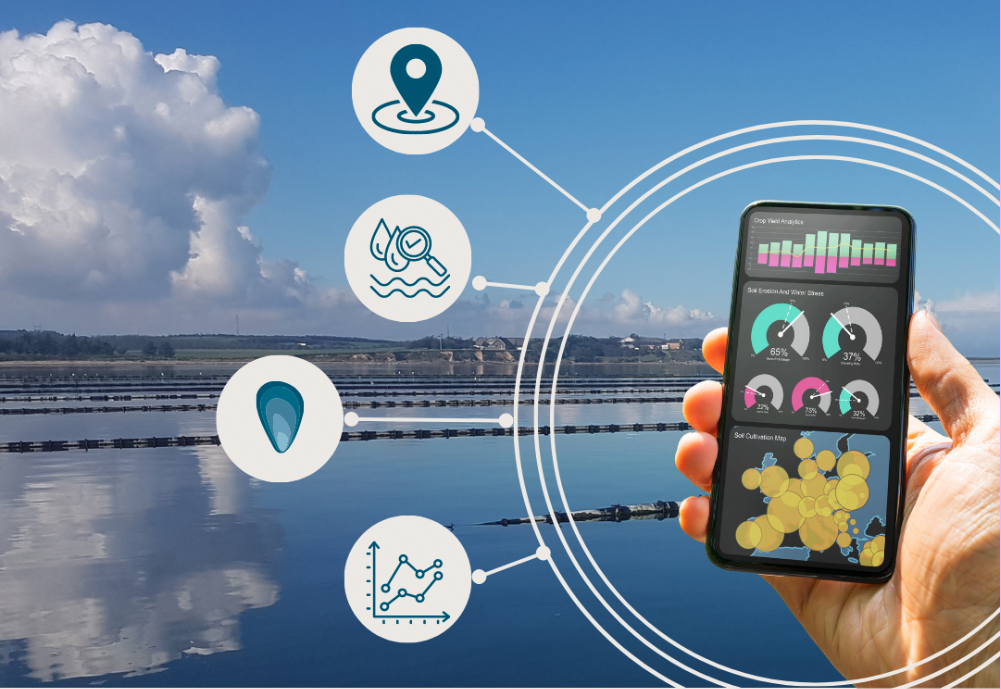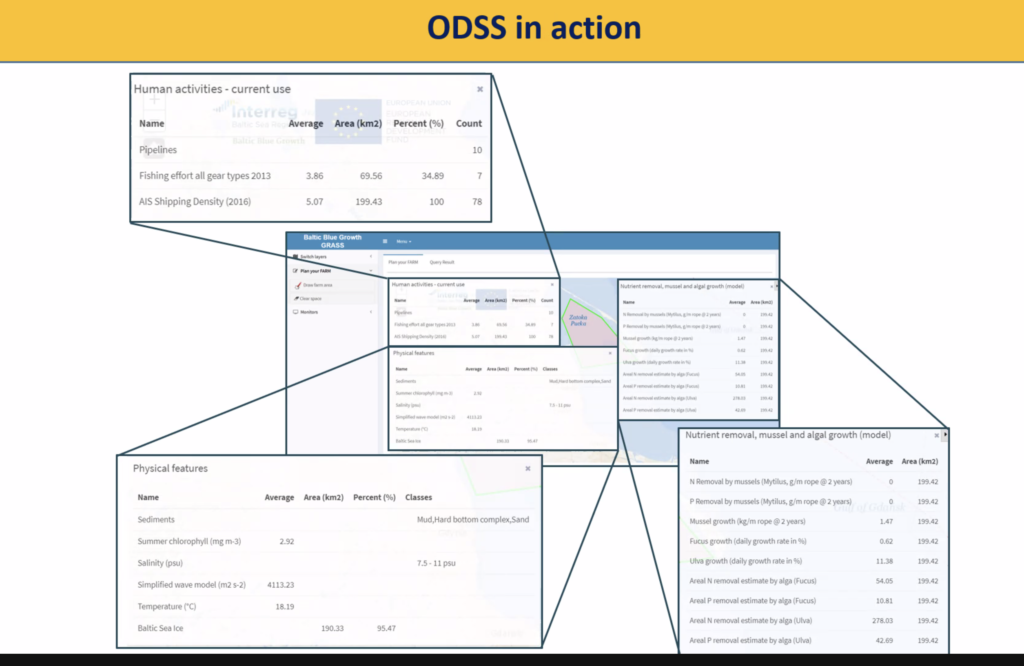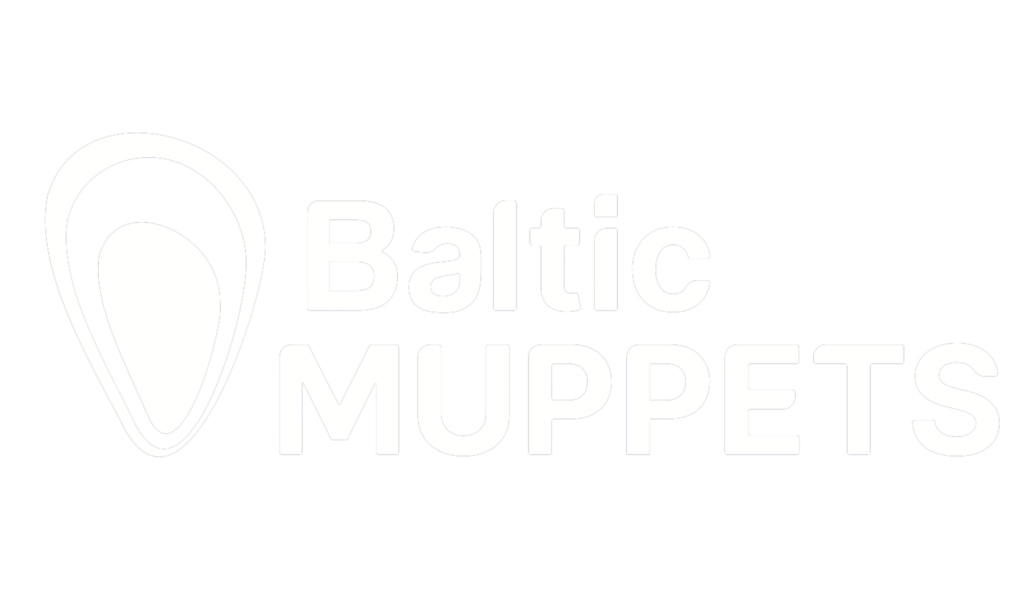Another successful meeting of the SUBMARINER Mussel Working Group took place on June 06, 2023. The session evolved around the topic of digital solutions for supporting mussel farming.

During the session, more than 21 participants learned about four different projects and engaged in discussions about the suitability of the tools in different regions and the similarities of challenges faced during the implementation of certain activities.
After a warm welcome from Annette Heiß, from SUBMARINER Network and Baltic MUPPETS Coordinator, the session kicked off with a presentation by Ralf Klis & Lucas Tracewski from Code & Caviar Limited (NZ & PL), who talked about their Mussel Farm Application, how it works, key functionalities, and the next steps. The app is designed to help farmers collect data from their production sites and combine it with other data like environmental data (water quality, phytoplankton density) and weather to facilitate decision-making –for example, when and which lines to harvest– and reporting. For this, there is a phone application to be used in the field that does not require a connection that synchs with the database once connected. The app also has a decision-assisting desktop dashboard, an operational database that can produce many reports and understanding of the current farming and operations status, such as financials reports, operational logs, supply chain data, etc.
Digital Tools for Seafood Processors
Then, Katie Healy from the Ireland Seafood Development Agency (BIM) shared about their project on researching the available Digital Food Safety Management Systems out there and supporting seafood processors on how to choose the best digital tools for their operations and support with the implementation process. The BIM identified that seafood processors rarely use digital tools and that many manual processes take up time and resources.
After consulting seafood processors, the BIM researched Digital Food Safety Management Systems available, and now they are sharing their learnings. They do not recommend one supplier, instead, they advise taking the time to understand the uniqueness of each company, operations, and/or process to find the most suitable system.
Community Platform for the Blue Bioeconomy
Katharina Kurzweil, from SUBMARINER Network for Blue Growth, shared about the Community Platform for the Blue Bioeconomy. It is an open and user-friendly platform to bring together people, companies, and projects involved with the Blue Bioeconomy.
Users can create either a user profile or a company or project profile. The platform will promote networking and interaction through direct messaging, forums, and thematic groups.
The platform will have a mentoring tool where users will be able to create profiles, either as mentors or mentees, describing their areas of expertise and what they are looking for promoting interaction and knowledge transfer.
The platform is currently in the Beta testing phase, and it will be launched in September 2023. If you want to get involved in the testing phase and provide feedback, please contact Annette Heiß (ah@submariner-network.eu).
Spatial Decision-Making Tools for the Baltic Sea
Back on technical tools for mussel farming, the presentation of Jonne Kotta followed. Jonne talked about two different spatial decision-making tools for the Baltic Sea that are developed at Tartu University in Estonia as part of past and current projects.
First, he talked about the Operational Decision Support System (ODDS), which is an application for promoting Baltic blue mussel and macroalgae farming. Users can upload analysis and share the information. The ODDS enables different end-users (farmers, authorities, and other stakeholders) to make effective decisions about mussel and algae farming in the Baltic Sea.
The portal has several features, such as supporting material, and other support resources, environmental impact assessment, and earlier impact evidence, among others. Jonne shared that one very useful is the Plan your FARM, which allows the user to draw a polygon in the Baltic Sea and then, the system calculates different features for the specific area like human activities taking place which can be in conflict or synergies with our goals, information about physical characteristics affecting mussel or algae culture (sediments, salinity, temperature, waves, ice), as well as assessments of potential growth yields for different low-trophic species and potential ecosystem services provided, like nitrogen or phosphorus sequestration.

Currently, as part of OLAMUR, Jonne and colleagues are working on a second version of the ODDS which includes the North Sea. The second version will include micro-siting tools with mussels, algae, and wind farms, and multi-use assessment features (seaweeds + mussels, mussels + fish, etc).
The second tool shared by Jonne was the PlanWise4Blue (PW4B). The Baltic Sea is one of the most intensively used seas in the world and is thus impacted by many factors affecting the marine environment. The PW4B is an open-source tool that enables estimating the cumulative impacts of human activities, both single and combined effects of human activities, and uses on a broad range of marine nature values. Two aspects noteworthy are that the tool also considers the positive effects of human activities, such as mussel or algae farming that contribute to ecosystem restoration, and climate change and potential environmental changes.
PW4B allows comparing different scenarios to find the best combination of human activities to choose the scenario that has the least negative impact on the environment and the most benefits.
Open Space & Pitches
The Mussel Working Group session counts with an Open Space & Pitches section where people involved in mussel aquaculture and processing are invited to share about their activities. This time, Florian Peine, from the Mecklenburg-Vorpommern Research Centre of Agriculture and Fisheries Institute of Fisheries (Germany), shared about their project on Combined aquaculture project in the Baltic Sea (rainbow trout and blue mussels) which seeks to develop an economic alternative for small-scale fishing operations in the region, most importantly it looks for the technical adaptation of common offshore aquaculture procedures to the domestic coastal conditions. As part of the project, they are developing a compensation process for the nutrient input of fish farms using mussels’ cultivation.
The project will continue for another three years, so to learn more about it contact Florian Peine (f.peine@ifa.mvnet.de).
Till the Next Time
Baltic MUPPETS is coordinating the Mussel Working Group and the next meeting will take place in September 2023, so follow the project closely to know more about the WP activities.
For any suggestions of topics for future meetings please contact Annette Heiß (ah@submariner-network.eu).


